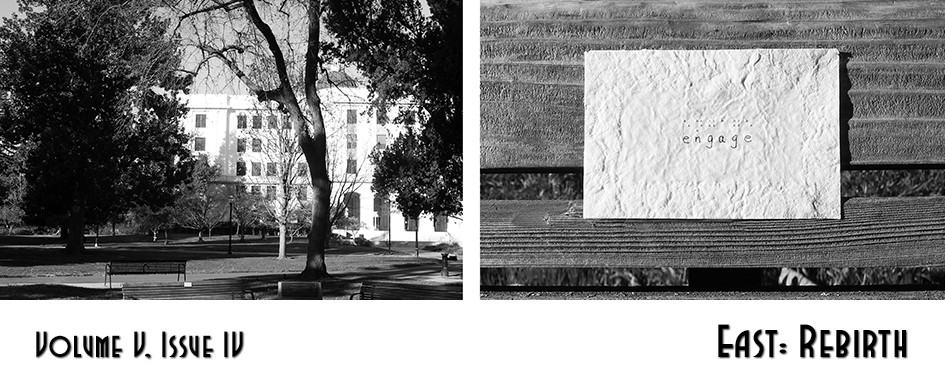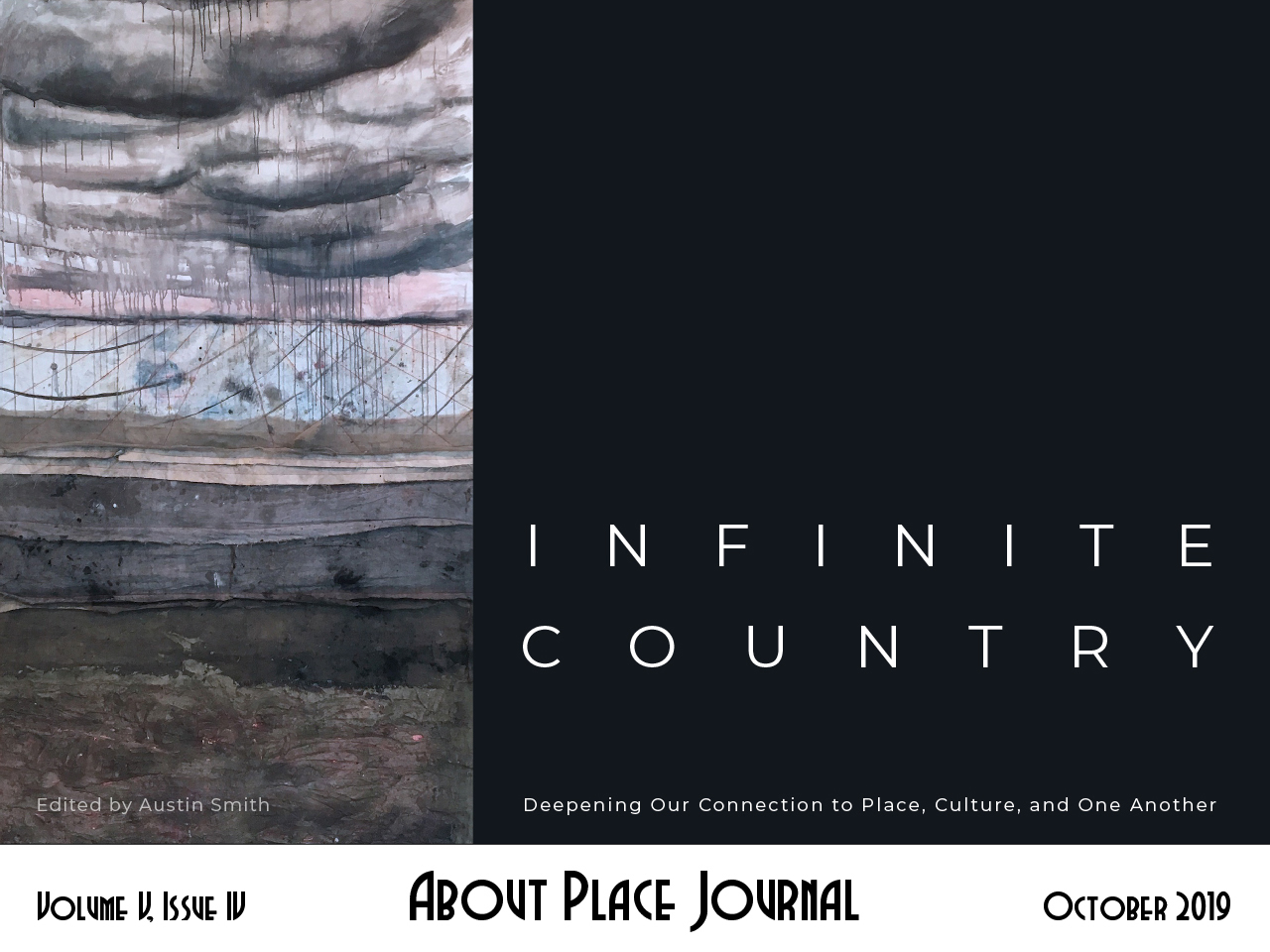creates an air that pushes back,
a humid sense, a smell that comes
as well to fields after rain. You might drop
onto your knees, then palms, arch your back
as if to root around, to get this smell
back home. But here, lifted from the floorboards
twenty-two inches into air, some hundred forty
tons of mass—it’s heavy, it’s how you breathe here.
Outside, the changing leaves broke
my heart in golden ways. November-crisp,
I nearly missed this season. Jacketed
twenty-somethings clustered on stone
benches by a fountain, caught in a block
of sunlight. Yellow translucent dance of leaves
enflamed the Village air above their heads,
below the high-rise—leaves they’ll tread
next week, sunlight that fed them—they
forked store-bought salads. In like layers, leaf mold
gathers each autumn on sidewalks and yearns,
I suppose, to become earth. It will, somehow.
I’d like to lie with you in a field of winter wheat.
To smell like that, to gaze up the miles of sky
that press us back. The man who filled this room
with earth had come from California. Now care
takers enter weekly with rakes and cull
imagined seedlings, but only after fire sprinklers
feed the tonnage of what we cannot see.
A hyper-aerobic, imported ecosystem,
microbial, desires like me (and you?) the right to mold
and grow in fuller earth than this, beyond the plexi barrier,
caught in a love of light in the leaves, but held
in a room where energy enters at angles,
reflected from the alley brick, fingering into
soil perhaps, but raked away—this earth puts out
heavy smells—squash of clod, artificial rain.


